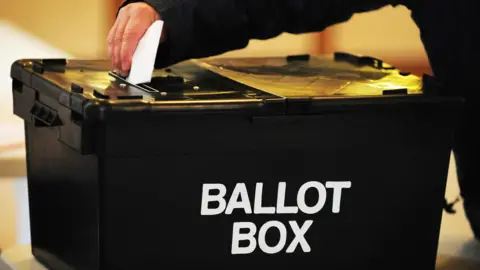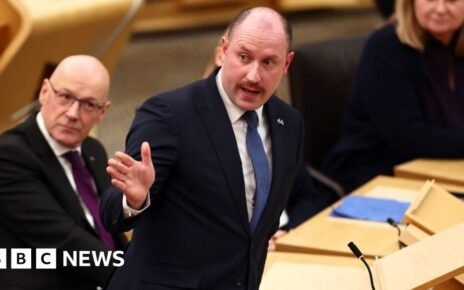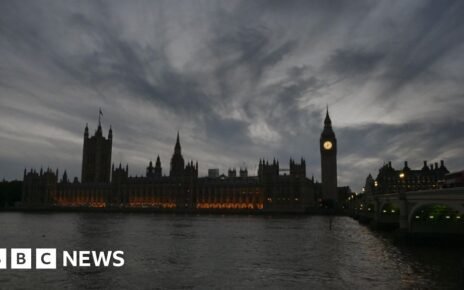[ad_1]
 PA
PAIntimidation and abuse during the general election put people off campaigning, the head of the Electoral Commission has said.
Vijay Rangarajan told the BBC Radio 4’s Today programme that some of the activities seen during the campaign – including slashing tires and targeting candidates’ families – were “totally unacceptable”.
He said the Electoral Commission was conducting a survey of candidates and electoral administrators and would report back in the autumn.
Following the 4 July election, the levels of intimidation faced by candidates has come under the spotlight.
Home Secretary Yvette Cooper has said she will be chairing a meeting of the government’s defending democracy taskforce following the “alarming rise” in abuse.
House of Commons Speaker Sir Lindsay Hoyle told the BBC he had “never seen anything as bad” as the current level of intimidation against MPs and that their safety kept him awake at night.
Speaking to the BBC on Tuesday, Electoral Commission boss Mr Rangarajan said that the election saw “a lot of attacks which did put people off campaigning, did put people off hustings”.
He also said there was a “tremendous amount of online abuse… some of those really quite disturbing – manipulated , misogynist videos.
“It’s a serious problem not least because it reduces the democratic debate and it impacts voters themselves.
“If some candidates are put off standing – particularly we think women, ethnic minorities are put off standing – then voters will have less choice.”
He said there needed to be discussions about what counts as valid criticism of politicians and what should be deemed unacceptable behaviour.
Some of the incidents seen during the campaign – including slashing tyres, throwing milkshakes and targeting candidates’ families – were “clearly unacceptable”, he said.
 PA
PAAppearing on the same programme, Brendan Cox, the widower of murdered MP Jo Cox, said there was a “real risk” that high levels of intimidation could slowly undermine democracy.
“Democracy doesn’t die in a flash – its not always a coup d’état, it can die by a thousand cuts.”
He said the election had seen a “real increase in the levels of intimidation”.
“Having spoken to lots of MPs about it, there was a sense that something had changed, that they felt hunted, that they felt unable to go about campaigning.”
“Let’s be clear, this isn’t just about one community. It’s not just about people that are pro-Gaza.
“Whether it was around the Scottish referendum or the Brexit referendum, I think there is something more caustic in our democratic culture which means that intimidation of MPs… is being seen as more legitimate by a wider range of courses.”
Last week, the government’s adviser on political violence Lord Walney suggested there could have been a “concerted campaign by extremists to create a hostile atmosphere for MPs within their constituencies to compel them to cave into political demands”.
Lord Walney – who was a Labour MP before being appointed to the House of Lords by then-Prime Minister Boris Johnson – urged the government to investigate whether groups in different areas were working together and to document the “dark underbelly” of abuse.
Speaking to the Guardian, he said there was a pattern of abuse “created by aggressive pro-Palestine activists”.
Responding to his interview with the newspaper, Labour MP Diane Abbott said: “This is just a crude effort to demonise all those who support Palestinian rights.”
[ad_2]
Source link




